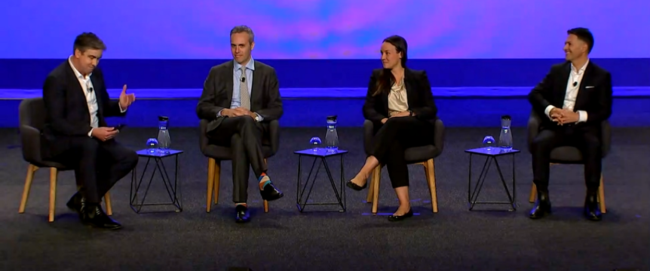A panel of experts at a recent forum run by the NSW Department of Customer Service took on the question of trust as the state presses ahead with its digital identity program, which would see the implementation of new identity products, processes and technology across government.
Having a digital identity would allow a wide range of ID and credentials to be stored in a digital wallet on a mobile device, including digital drivers licence, passes, permits, educational qualifications, birth certifcate, health information and car registation.
The government is at pains to stress the program would be secure, private and optional, and points to better customer service as one of the selling points of a digital ID system from a government perspective.

But former Human Rights Commissioner Ed Santow told the Future.NSW event this month that no sustainable digital identity could be built without the key ingredient of trust and there are three key steps to earning trust.
“The first is you need to talk really openly with the community about why you are using technology for a particular input,” he told attendees at the Futre.NSW event this month.
“Secondly, and this may sound counterintuitive, you’ve got to be open about what the risks are.
“And then the third step is to say just that, right? What are the things that you could do as a consumer, as a citizen, in order to keep yourself safe?”
More than just digitisation
Victor Dominello, Minister for Customer Service and Digital Government and fellow said digital ID is about putting people at the centre, and about transforming, not just digitising, services.
“What we’ve demonstrated in DCS in particular is that if we put the customer at the center of the journey, then it’s much more than just a digitisation, he said at the event,” he said.
“It’s the atom experience of how do I make my life? How do I make sure that I have less engagement with government so I’ve got more time at the beach?”
People also need to know how their information will be used, Mr Dominello said.
“I think one of the things that helps us navigate our way forward is to show people the practical application of all this.
“We can all have an esoteric discussion around digital identity and all things but people (need to know how it’s relevant today).
“Well, it’s relevant to you because if we’ve got digital identity locked in to your Working with Children Check, then that’s going to protect kids.”
Importance of choice
A digital identity may not be what everyone wants, so it’s important to provide choice, Mr Dominello said.
“If I was to do my job properly, every transaction will be digitised, and therefore there’d be no need for a service centre, but they are a critical, critical part.
“There are a whole lot of people that still want to see that face-to-face engagement, so it is critical in our pathway, that choice is always part of the equation.”
Looking to the future
Mr Dominello would like to see customers having more control in the future.
“At the moment, If I go in to a to hire a car, I’m giving them my plastic driver’s license, they are taking a photocopy of all the information that’s on it.
“They put that copy into their file and then probably the cloud and then who knows where it goes from there; I’ve lost complete control.
“In the not too distant future, I would like for us to be in a place where we as individuals have a lot more control on who gets to see information about me.”
Fellow panellist Lenka Bradovkova, Executive Director of Identity.NSW, would like digital identities to be shared across states and countries.
“We really need to work towards a future where people are able to share their identity, not only in NSW, but also across other states and internationally (and) to be able to travel with it,” she told attendees.
“That’s the ecosystem that we’re building – that interoperability where that identity can be trusted, not only locally, but internationally.”
The NSW government is currently taking public feedback on the accessibility and inclusivity of the Digital Identity program.





Leave a Reply